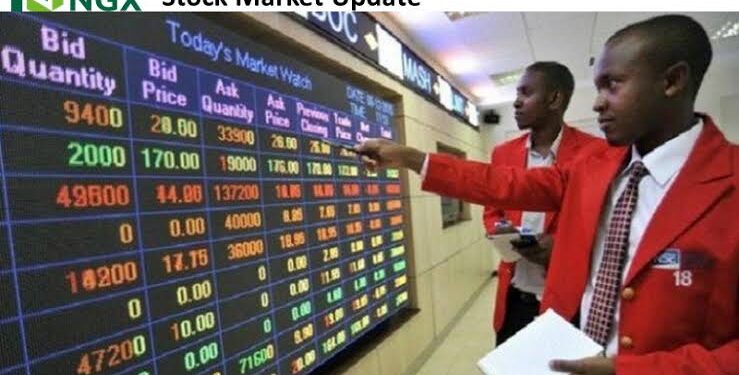The Nigerian stock market recorded a loss of N209 billion in market capitalisation on Wednesday, as investors reacted negatively to the Central Bank of Nigeria’s (CBN) recent interest rate hike.
The Monetary Policy Committee (MPC) of the CBN raised the Monetary Policy Rate (MPR) by 25 basis points to 27.50 per cent in November, up from 27.25 per cent in September.
The Governor of the Central Bank od Nigeria (CBN), Mr Olayemi Cardoso, announced this decision following the 298th MPC meeting in Abuja.
He said that the hike aimed to tackle rising inflation, which stood at 33.87 per cent in October.
Following the announcement, the Nigerian Exchange Ltd. (NGX) market capitalisation dropped from N59.178 trillion to N58.969 trillion, a 0.35 per cent decline.
Similarly, the All-Share Index fell by 330 points to close at 97,296.57, down from 97,626.27 on Tuesday, reducing the Year-to-Date return to 30.12 per cent.
Losses in stocks such as Aradel, Fidelity Bank and Nigerian Breweries contributed to the downturn.
The market breadth closed negative; 26 stocks declined, while 23 gained.
JohnHolt led the losers’ chart with a 10 per cent decline to N9.90 per share, while Sunu Assurances topped the gainers’ list with a 9.97 per cent rise to N4.19 per share.
Market activity increased, with 822.46 million shares valued at N10.29 billion traded in 9,385 deal, representing 28.07 per cent rise in transaction value compared to the previous session.
Japaul Gold led in trading volume with 115.93 million shares, while Guaranty Trust Holding Company (GTCO) dominated value transactions with N1.52 billion.
Analysts at Cowry Asset Management Ltd. had predicted mixed market directions ahead of the MPC’s decision, noting its potential impact on interest rate expectations and investment strategies.
They also highlighted opportunities for strategic positioning in fundamentally strong stocks as November trading wraps up and fund managers prepare for December’s window-dressing activities.











